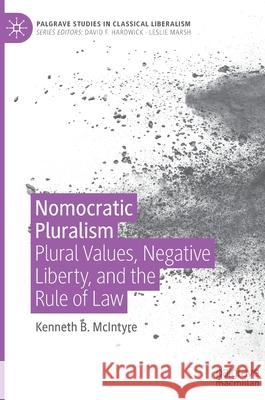Nomocratic Pluralism: Plural Values, Negative Liberty, and the Rule of Law » książka
topmenu
Nomocratic Pluralism: Plural Values, Negative Liberty, and the Rule of Law
ISBN-13: 9783030533892 / Angielski / Twarda / 2020 / 214 str.
Nomocratic Pluralism: Plural Values, Negative Liberty, and the Rule of Law
ISBN-13: 9783030533892 / Angielski / Twarda / 2020 / 214 str.
cena 261,63
(netto: 249,17 VAT: 5%)
Najniższa cena z 30 dni: 250,57
(netto: 249,17 VAT: 5%)
Najniższa cena z 30 dni: 250,57
Termin realizacji zamówienia:
ok. 22 dni roboczych
Bez gwarancji dostawy przed świętami
ok. 22 dni roboczych
Bez gwarancji dostawy przed świętami
Darmowa dostawa!
Kategorie BISAC:
Wydawca:
Palgrave MacMillan
Seria wydawnicza:
Język:
Angielski
ISBN-13:
9783030533892
Rok wydania:
2020
Wydanie:
2021
Numer serii:
000827963
Ilość stron:
214
Waga:
0.42 kg
Wymiary:
21.01 x 14.81 x 1.42
Oprawa:
Twarda
Wolumenów:
01
Dodatkowe informacje:
Wydanie ilustrowane











